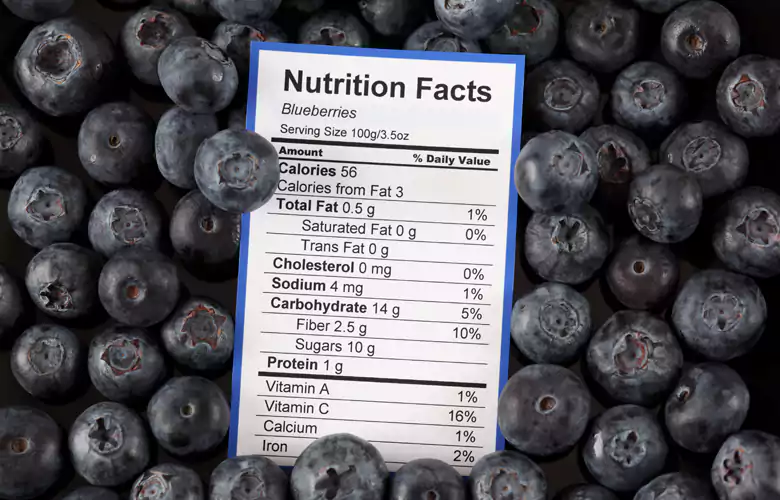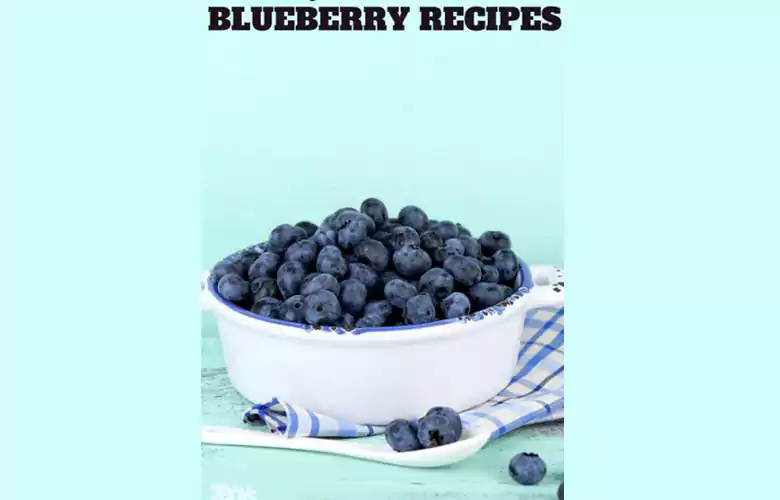
Introduction
Blueberries, a delightful burst of flavor and nutrition, have been a part of our diet for over 13,000 years. Did you know that these naturally blue wonders are not just a treat for the taste buds but also a nutritional powerhouse? Let’s dive into the world of blueberries, a fruit that’s as fascinating as it is delicious.
Nutritional Value
A single handful of blueberries (about 1/2 a cup) packs a punch with only 40 calories, 2 grams of dietary fiber, and 12% of your daily recommended vitamin C intake. Remarkably, blueberries lead the pack in antioxidant health benefits, outperforming over 40 other fresh fruits and vegetables. The secret lies in their color, the anthocyanin that gives blueberries their unique blue hue is also the powerhouse behind their health benefits.

Varieties and Cultivation
The blueberry (genus Vaccinium) is one of the few commercially available fruits native to North America. British Columbia stands as the largest highbush blueberry growing region globally, with Canada ranking third in production after the US and Chile. A single blueberry bush can yield up to 6,000 berries annually, contributing significantly to Canada’s status as the most exported fruit.

Interesting Facts
Blueberries were traditionally known as “star-fruits” by North American indigenous peoples, a name inspired by the five-pointed star shape at the berry’s blossom end. The silvery sheen, or “bloom,” on their skin is a natural compound that protects the fruit. This is why it’s best to wash blueberries only before eating them. When stored in the refrigerator, they can remain fresh for up to 10 days.
Culinary Uses
In the kitchen, blueberries offer versatility and a burst of flavor. Whether in muffins, pancakes, smoothies, or pies, their natural sweetness and rich flavor make them a favorite ingredient.

Health Benefits
Consuming blueberries is linked to numerous health benefits, including reduced cancer risk, improved insulin response, reversal of age-related memory loss, and lower blood pressure. Their high antioxidant content plays a crucial role in these health benefits.
Environmental Impact
The cultivation of blueberries, especially in regions like British Columbia, emphasizes the importance of sustainable farming practices to minimize environmental impact.
Cultural Significance
From being a native North American fruit to being an integral part of various cultural heritages, blueberries hold a special place in different regions around the world.
Selection and Storage
Choosing and storing blueberries properly is key to enjoying their freshness. Remember, the bloom on their skin is a natural protector, so wash them only when ready to eat.
Conclusion
Blueberries, with their unique color, rich history, and impressive health benefits are more than just a tasty snack. They are a testament to nature’s incredible bounty. Incorporating blueberries into your diet is not just a treat for your taste buds but a boon for your health.
FAQs
Q: What is the nutritional value of a handful of blueberries?
A: A half-cup serving contains only 40 calories, 2 grams of dietary fiber, and 12% of the daily recommended vitamin C.
Q: How do blueberries compare in antioxidant content to other fruits?
A: Blueberries rank number one in antioxidant health benefits compared to over 40 other fruits and vegetables.
Q: How long have humans been consuming blueberries?
A: People have been enjoying blueberries for more than 13,000 years.
Q: What is the significance of the blueberry’s ‘bloom’?
A: The bloom is a natural compound that protects the fruit, which is why it’s best to wash them only before eating.
Q: What are some health benefits of eating blueberries?
A: They include reduced cancer risk, improved insulin response, reversal of age-related memory loss, and lower blood pressure.
Q: What makes blueberries blue?
A: The blue color comes from anthocyanins, powerful antioxidants found in their skin.
Q: Can blueberries improve brain function?
A: Yes, studies suggest that blueberries can enhance cognitive function and memory.
Q: How long can a blueberry plant produce fruit?
A: A blueberry plant can live up to 70 years, producing fruit annually.
Q: Are blueberries easy to incorporate into meals?
A: Absolutely! They’re versatile in recipes from breakfast to desserts.
Q: What’s the best way to store fresh blueberries?
A: Keep them in the fridge, preferably in a breathable container.



